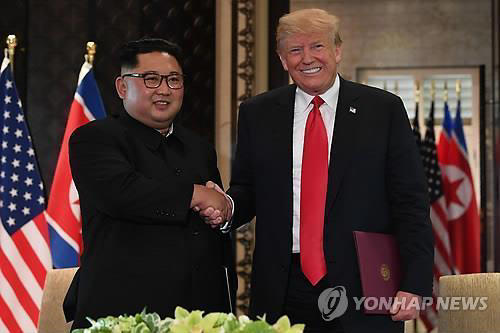In the context of the 2024 U.S. presidential elections, former President Donald Trump’s potential reelection raises important questions about the future of U.S. engagement with North Korea. If Trump were to return to the Oval Office, he would likely revisit the complex and challenging issues surrounding North Korea, including its nuclear program and its role in regional security.
Currently, North Korea’s strategic alignment with Russia has become increasingly significant. As North Korea continues to strengthen its military and political ties with Moscow, this partnership has been notably enhanced by the ongoing conflict between Russia and Ukraine. Russia’s support, particularly in terms of providing energy resources to North Korea, has alleviated some of the economic and logistical pressures on Pyongyang. This assistance has allowed North Korea to gain a degree of freedom and leverage in its international dealings.
Geopolitical Objectives of North Korea, China, and Russia: McMaster argues that North Korea’s alliance with Russia and China reflects a broader geopolitical strategy to diminish U.S. influence in key regions. This alignment suggests a coordinated effort by these nations to challenge and potentially displace U.S. dominance in critical areas such as the Indo-Pacific and the Korean Peninsula.
For North Korea, a major goal is to reduce or eliminate the U.S. military presence on the Korean Peninsula, which it views as an obstacle to its ambitions for unification with South Korea. This aspiration is part of a larger strategy to achieve greater regional influence and assert North Korea’s role in East Asian geopolitics. Similarly, China’s efforts to establish dominance across the Indo-Pacific region and Russia’s aim to reassert itself as a global power are intertwined with these broader geopolitical ambitions.
Iran’s Regional Influence and U.S. Strategic Interests: In addition to the North Korea-Russia-China axis, McMaster also points to Iran’s ambitions to expand its regional influence in the Middle East. Iran seeks to extend its hegemonic reach through various means, including supporting proxy groups and forming strategic alliances that challenge U.S. interests in the region. This pursuit of regional dominance is part of Iran’s broader strategy to enhance its position and counter U.S. influence in the Middle East.
Trump’s Defense Cost-Sharing and U.S. Allies: One of the prominent aspects of Trump’s foreign policy is his stance on defense cost-sharing with U.S. allies. Trump has been a vocal critic of what he perceives as “free-riding” by other nations, arguing that the U.S. shoulders an disproportionate share of the financial burden for maintaining its military commitments abroad. This perspective has been a key component of his approach to international relations, particularly with allies such as South Korea and Japan.
McMaster supports Trump’s argument by highlighting the financial and strategic implications of U.S. military presence in these countries. For instance, South Korea has been increasing its defense spending and contributing to the costs of U.S. forces stationed there. This arrangement is intended to share the financial burden of maintaining U.S. military capabilities in the region. McMaster emphasizes that if U.S. forces were withdrawn from South Korea and Japan, the costs associated with relocating and sustaining these forces domestically would be significantly higher for American taxpayers.
Strategic and Economic Implications: The potential reelection of Trump introduces a range of strategic and economic considerations. On the strategic front, Trump’s administration would likely seek to address ongoing challenges with North Korea, potentially revisiting diplomatic and military strategies to manage Pyongyang’s ambitions. The strengthening of ties between North Korea, Russia, and China, along with Iran’s regional maneuvers, adds complexity to U.S. foreign policy and international security dynamics.
Economically, Trump’s focus on defense cost-sharing raises important questions about the financial responsibilities of U.S. allies and the sustainability of American military commitments abroad. His administration’s approach to these issues could influence future defense policy and international relations, with potential implications for U.S. alliances and global security.
Conclusion: The impact of a potential Trump reelection on North Korean relations and U.S. defense alliances is multifaceted. As Trump’s administration may revisit and potentially reshape U.S. strategies towards North Korea and other key players, the evolving dynamics of international alliances and regional power balances will play a crucial role in shaping the future of global security. The interplay between North Korea’s geopolitical ambitions, the strategic interests of Russia and China, and Iran’s regional influence underscores the complexities of U.S. foreign policy in a rapidly changing global landscape.
